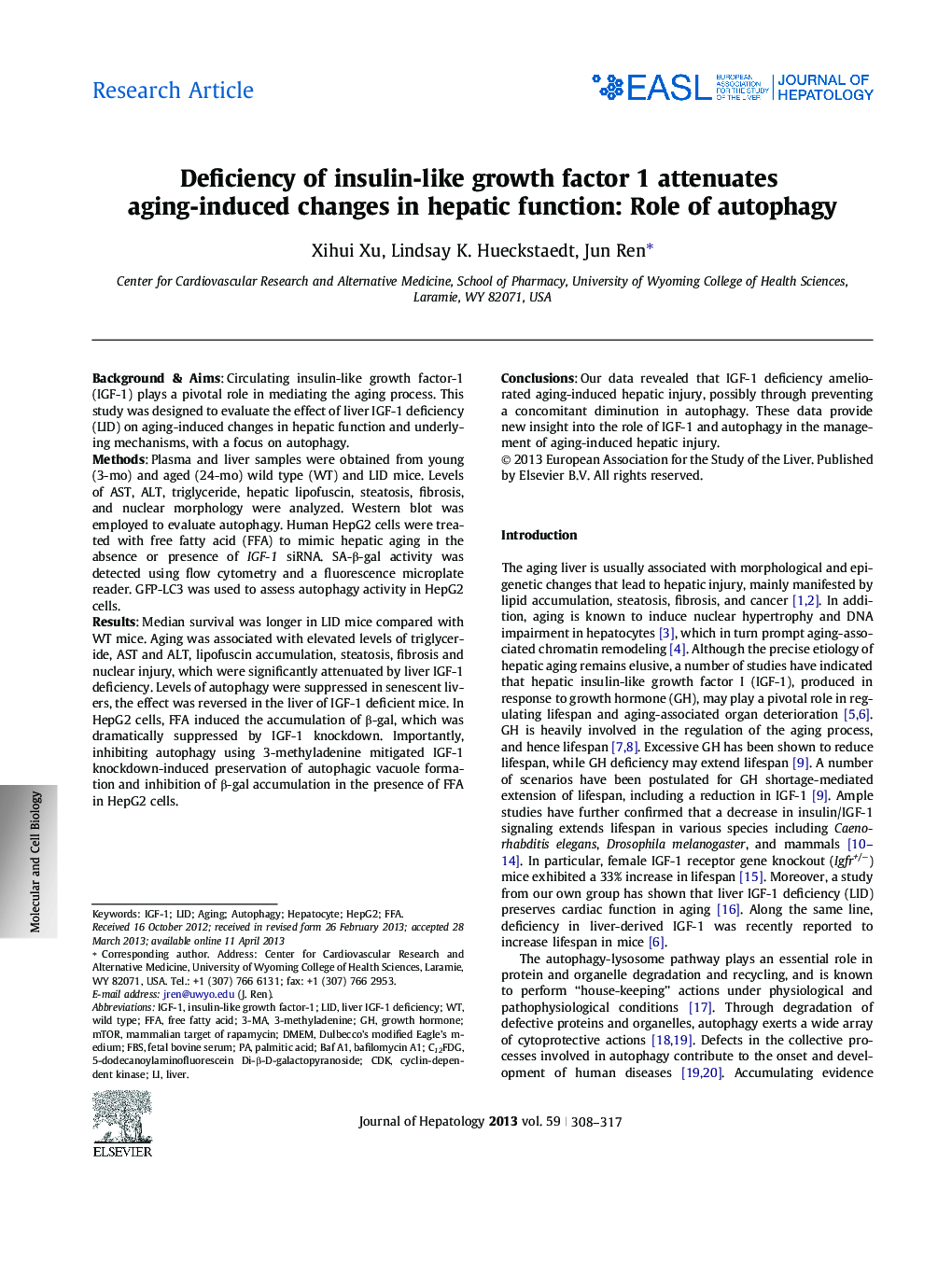| Article ID | Journal | Published Year | Pages | File Type |
|---|---|---|---|---|
| 6104333 | Journal of Hepatology | 2013 | 10 Pages |
Background & AimsCirculating insulin-like growth factor-1 (IGF-1) plays a pivotal role in mediating the aging process. This study was designed to evaluate the effect of liver IGF-1 deficiency (LID) on aging-induced changes in hepatic function and underlying mechanisms, with a focus on autophagy.MethodsPlasma and liver samples were obtained from young (3-mo) and aged (24-mo) wild type (WT) and LID mice. Levels of AST, ALT, triglyceride, hepatic lipofuscin, steatosis, fibrosis, and nuclear morphology were analyzed. Western blot was employed to evaluate autophagy. Human HepG2 cells were treated with free fatty acid (FFA) to mimic hepatic aging in the absence or presence of IGF-1 siRNA. SA-β-gal activity was detected using flow cytometry and a fluorescence microplate reader. GFP-LC3 was used to assess autophagy activity in HepG2 cells.ResultsMedian survival was longer in LID mice compared with WT mice. Aging was associated with elevated levels of triglyceride, AST and ALT, lipofuscin accumulation, steatosis, fibrosis and nuclear injury, which were significantly attenuated by liver IGF-1 deficiency. Levels of autophagy were suppressed in senescent livers, the effect was reversed in the liver of IGF-1 deficient mice. In HepG2 cells, FFA induced the accumulation of β-gal, which was dramatically suppressed by IGF-1 knockdown. Importantly, inhibiting autophagy using 3-methyladenine mitigated IGF-1 knockdown-induced preservation of autophagic vacuole formation and inhibition of β-gal accumulation in the presence of FFA in HepG2 cells.ConclusionsOur data revealed that IGF-1 deficiency ameliorated aging-induced hepatic injury, possibly through preventing a concomitant diminution in autophagy. These data provide new insight into the role of IGF-1 and autophagy in the management of aging-induced hepatic injury.
